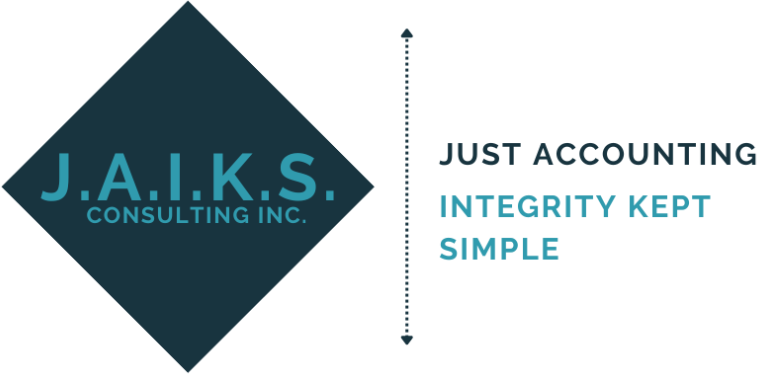J.A.I.K.S. BLOG
Welcome to J.A.I.K.S. Blog, a place where we will provide you with a variety of resources on accounting, taxation and other related subjects suited for both individuals and/or their businesses.
We hope you can find the answers to your questions and/or curiosities, and always know we are here to help if you need more.
Follow us on Facebook or find us on LinkedIn - we are always eager to give you more!
Disclaimer:
The content provided in this blog is for general informational purposes only and is not intended as professional accounting, tax, or financial advice. While efforts are made to ensure the accuracy and timeliness of the content, errors or omissions may occur. The content does not constitute a client-advisor relationship. Readers should consult with a Chartered Professional Accountants or other financial professional for advice tailored to their specific needs. We are not liable for any actions one might take based on the information provided in this blog.
The Disability Tax Credit & Low-Income Canadians
For low-income individuals in Canada, claiming the Disability Tax Credit (DTC) can provide additional financial benefits through refundable tax credits and other programs. Here are some key points to consider:
- Non-refundable tax credit: The DTC is a non-refundable tax credit, which means it can only be used to reduce your taxes owed. If your income is low and you don't have a significant tax liability, the non-refundable nature of the credit may limit its immediate financial impact.
- Refundable tax credits: In certain cases, low-income individuals may be eligible for refundable tax credits that are linked to the DTC. For example, the Canada Workers Benefit (CWB) is a refundable tax credit that provides additional income support for individuals with low earnings, including those eligible for the DTC.
- Registered Disability Savings Plan (RDSP): The RDSP is a long-term savings plan designed to assist individuals with disabilities. Low-income individuals who are eligible for the DTC may be eligible for the Canada Disability Savings Grant (CDSG) and the Canada Disability Savings Bond (CDSB), which provide additional contributions to their RDSP.
- Canada Child Disability Benefit (CCDB): The CCDB is a tax-free monthly benefit available to eligible families caring for a child with a disability. It is an additional amount provided under the Canada Child Benefit program. To be eligible, the child must meet the criteria for the DTC, and the family's income must fall within the specified thresholds.
- Provincial and territorial programs: In addition to federal programs, various provinces and territories in Canada offer additional benefits and programs for individuals with disabilities. These programs may include income support, healthcare benefits, transportation assistance, and more. The specific programs and eligibility criteria vary by province or territory.
- The DTC for a low income person can be transferred to a spouse or responsible family member who is caring for that low-income person and thereby help to reduce their income.
It's important to note that eligibility and benefits can vary depending on individual circumstances and the specific programs available in your province or territory. To ensure you receive the maximum benefits available to you, I suggest that you contact our office for assistance as we can provide personalized guidance based on your situation. I also recommend consulting the official Canada Revenue Agency website or contacting them directly.


Comments